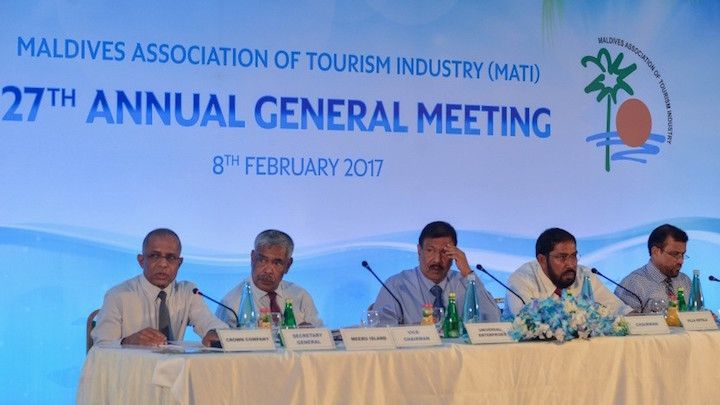Tourism lobby scuttled rules banning resorts from selling dollars
The rules were aimed at alleviating a persisting dollar shortage and tackling an entrenched black market.

14 Feb 2017, 09:00
A powerful lobby group representing Maldivian resort owners used its influence to scuttle several pieces of regulation in 2016, including new rules proposed by the central bank to ban resorts from selling dollars.
The move was reportedly aimed at alleviating a persisting dollar shortage and tackling an entrenched black market.
The Maldives Association of Tourism Industry noted in its annual report that it asked the central bank to scrap plans to restrict resorts to only buying foreign currency after a draft regulation was shared for feedback.
“We were successful in persuading the Maldives Monetary Authority to drop the present proposed regulation on foreign currency exchange,” MATI Secretary-General Ahmed Nazeer said at the organisation’s 27th general assembly last week, outlining “key achievements” during the past year.
Become a member
Get full access to our archive and personalise your experience.
Already a member?
Discussion
No comments yet. Be the first to share your thoughts!
No comments yet. Be the first to join the conversation!
Join the Conversation
Sign in to share your thoughts under an alias and take part in the discussion. Independent journalism thrives on open, respectful debate — your voice matters.




